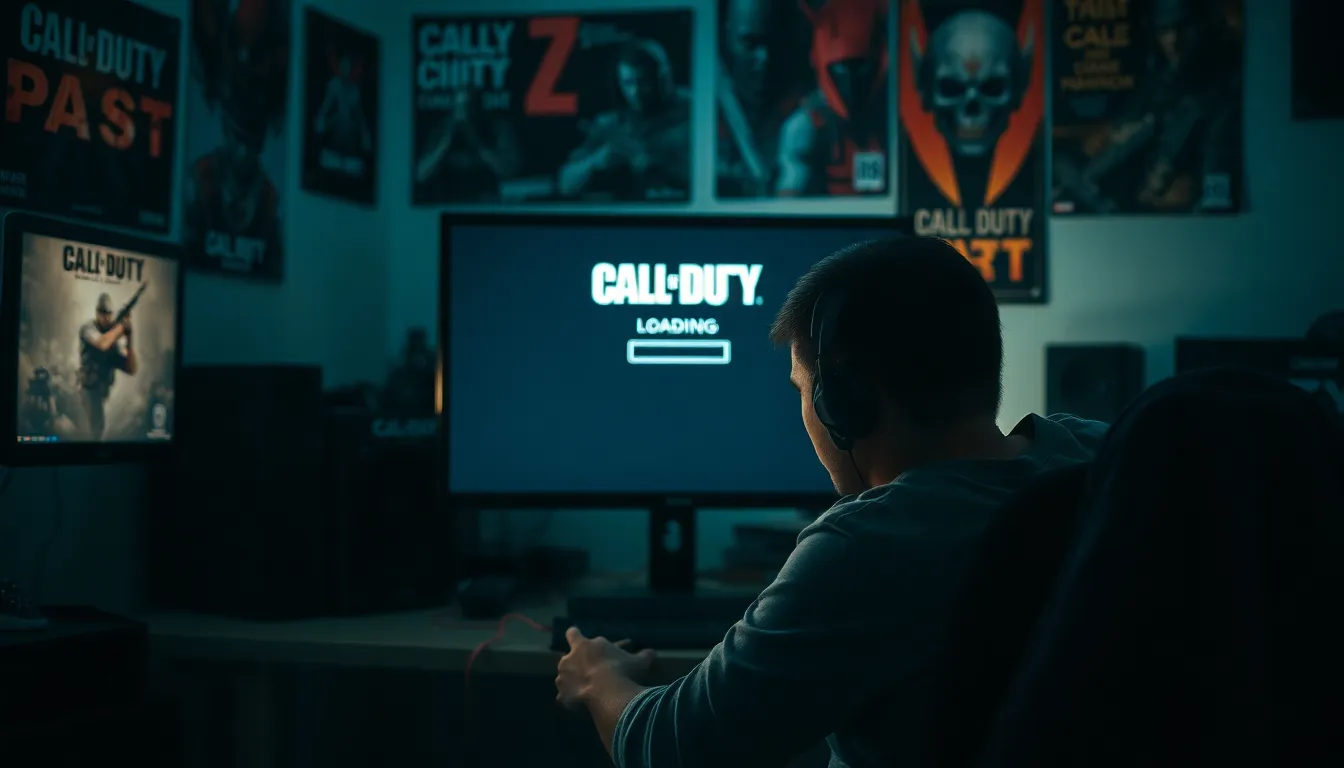Table of Contents
ToggleIn the chaotic world of Call of Duty, few things can be more frustrating than the dreaded “waiting for relay” message. It’s like being stuck in a never-ending line at the DMV while your friends are out there racking up kills and enjoying the action. Players find themselves tapping their controllers and wondering if they accidentally signed up for a game of patience instead of warfare.
Overview of Call of Duty Waiting for Relay
Encountering the “waiting for relay” message in Call of Duty disrupts gameplay significantly. Players often find themselves unable to join their friends in action. This issue occurs mainly during matchmaking or server connectivity challenges. Technical glitches tend to trigger the message, frustrating players eager to jump into the game.
Reportedly, server overload is a common cause of this problem. High player volume leads to latency issues, creating prolonged waiting times. Some players notice that attempting to reconnect multiple times sometimes resolves the situation. Others find that restarting the game offers a quick fix.
In addition, network settings play a crucial role. Slow internet connections may exacerbate the delays. Players should consider optimizing their internet settings or switching to a wired connection for enhanced stability.
Keeping an eye on official forums or social media channels could provide updates on server status. Developers often communicate issues and provide estimated resolution times. Adopting these strategies can minimize downtime and enhance the overall gaming experience.
Identifying patterns in when the message appears can help players adjust accordingly. Knowing peak hours for online gaming allows players to strategize their playtime, avoiding potential frustrations. Through vigilance and proactive measures, players can reduce their encounters with the “waiting for relay” message.
Causes of Waiting for Relay Issues

Understanding the causes of waiting for relay issues helps players address them effectively. These problems often stem from network connections or server performance.
Network Connection Problems
Network connection problems frequently lead to the waiting for relay message. Slow internet speeds can disrupt gameplay, making it challenging to connect to servers. Wireless connections often present interruptions, so players should consider switching to wired options for more stability. Latency also increases with weak signals, resulting in longer waiting times before matchmaking begins. Players should regularly check their internet speed and quality to ensure they meet the minimum requirements. Fluctuating connections may necessitate network troubleshooting, such as resetting the router or adjusting settings for improved performance.
Server Issues
Server issues account for significant instances of the waiting for relay alert. High player volume often stresses servers, causing delays and connectivity challenges. Outages can lead to prolonged waiting times, as can maintenance updates that affect availability. During peak hours, players might experience more frequent interruptions due to loading congestion. Keeping track of maintenance schedules on official forums can help players anticipate server downtime. Developers typically post updates about server status, enabling players to adapt their gameplay accordingly. Monitoring for these issues contributes to a smoother gaming experience overall.
Troubleshooting Tips
Players can take several steps to resolve the “waiting for relay” issue in Call of Duty. Implementing these tips may enhance gameplay and reduce frustration.
Restarting the Game
Restarting the game often resolves temporary glitches. This action can refresh connections to game servers. Players experience success by fully closing the game application and reopening it. Doing this simple task may help reestablish a stable connection. Many players find that this quick fix eliminates the waiting message.
Checking Internet Connection
Checking the internet connection is essential for smooth gameplay. Players should run speed tests to ensure upload and download speeds meet the game’s requirements. A download speed of at least 3 Mbps is generally advisable for online gaming. Additionally, ensuring the router operates optimally can further improve connectivity. Connecting via a wired Ethernet cable instead of Wi-Fi often enhances stability.
Adjusting Network Settings
Adjusting network settings can significantly impact game performance. Enabling Quality of Service settings on the router prioritizes gaming traffic. Players can also consider changing DNS settings to public servers like Google DNS or OpenDNS for improved response times. Regularly updating router firmware keeps network settings aligned with current standards. Assessing firewall settings makes certain that game data can flow without interruptions.
Player Experiences and Feedback
Experiencing the “waiting for relay” message prompts a range of responses from players. Many express frustration over this interruption, as it halts gameplay and distances them from friends who continue without issues.
Common Frustrations
Frustration often stems from long wait times during matchmaking. Players frequently mention the disappointment of appearing disconnected while their friends enjoy the game. Technical glitches contribute to these emotional responses, as players feel stuck in limbo. Server overload during peak gaming hours raises concerns about stability and reliability. Additionally, slow internet connections can exacerbate these delays, prompting irritation. Missing out on team strategies and gameplay compromises the overall experience. Players often share these feelings online, creating a community dialogue around the issue. Enabling Quality of Service on routers also appears as a commonly discussed remedy to alleviate frustrations.
Positive Outcomes
Some players found that troubleshooting efforts lead to improved connections. Realizing the benefits of switching to a wired connection enhances their gaming experience significantly. Regularly checking internet speeds helps players assess and address performance issues proactively. Positive feedback sometimes highlights that restarting the game resolves many connectivity issues effectively. Players often report finding joy in successfully navigating connections, especially after implementing recommendations. Community engagement on forums fosters understanding, sharing effective strategies among players. Learning about maintenance schedules reinforces proactive gameplay planning, minimizing interruptions and enhancing enjoyment.
Experiencing the “waiting for relay” message can be a major setback for Call of Duty players. It interrupts gameplay and creates unnecessary frustration as they watch their friends continue without them. By understanding the causes of this issue and implementing effective troubleshooting strategies, players can enhance their gaming experience.
Optimizing network settings and staying informed about server statuses can greatly reduce downtime. Engaging with the gaming community for shared solutions also fosters a sense of support. With these proactive measures in place, players can minimize interruptions and get back to enjoying the action on the battlefield.





